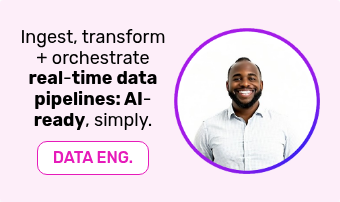Machine learning (ML) is a subset of artificial intelligence (AI) that allows computers to learn and make predictions without being explicitly programmed.
Machine learning algorithms use statistical models to analyse data and make predictions about future events or trends. This technology is becoming increasingly important in today's digital economy as organisations look for ways to make sense of the vast amounts of data they collect.
There are several types of machine learning algorithms, including supervised learning, unsupervised learning, and reinforcement learning:
- Supervised Learning algorithms are trained on a labelled dataset, which means that the data has been labelled with the correct output. These algorithms are used for tasks such as classification and regression.
- Unsupervised Learning algorithms are trained on an unlabelled dataset and are used for tasks such as clustering and anomaly detection.
- Reinforcement Learning algorithms are used to train agents to make decisions in an environment.
To make machine learning work, there are several key components that need to be in place. The first is a robust data infrastructure. Machine learning algorithms rely on large amounts of data to train and make predictions. Without a reliable data infrastructure, it's difficult to collect, store, and process the data needed for machine learning. Organisations need to have a system in place to collect, store, and process data in real-time, as well as a way to access and analyse the data.
Another key component is a team of experienced data scientists. Machine learning is a complex technology that requires a deep understanding of statistics, programming, and data management. A team of experienced data scientists is needed to design, implement, and maintain machine learning models, as well as be responsible for selecting the appropriate algorithms, preparing the data, and evaluating the performance of the models. This is, unless you re using an advanced, hybrid iPaaS, Data, ETL, IoT, ETL, BI, App Development + PaaS platform, such as Rayven, which features easy-to-use interfaces, prebuilt functionality and algorithms, as well as the ability test, train and deploy algorithm into live solutions using only drag-and-drop - find out more about Rayven's machine learning capabilities.
There are several other things that need to be in place to make machine learning work. For example, organisations need to have a clear understanding of the problem they're trying to solve and the data they have available. They also need to have a plan for how the data will be used and how the results will be integrated into existing systems and processes.
In summary
Machine learning (ML) is a subset of artificial intelligence (AI) that allows computers to learn and make predictions without being explicitly programmed.
Machine learning algorithms use statistical models to analyse data and make predictions about future events or trends. To make machine learning work, organisations need to have a robust data infrastructure, a team of experienced data scientists and a clear understanding of the problem they're trying to solve and the data they have available. Additionally, organisations need to have a plan for how the data will be used and how the results will be integrated into existing systems and processes.
Speak to us today to get started.
Author






















